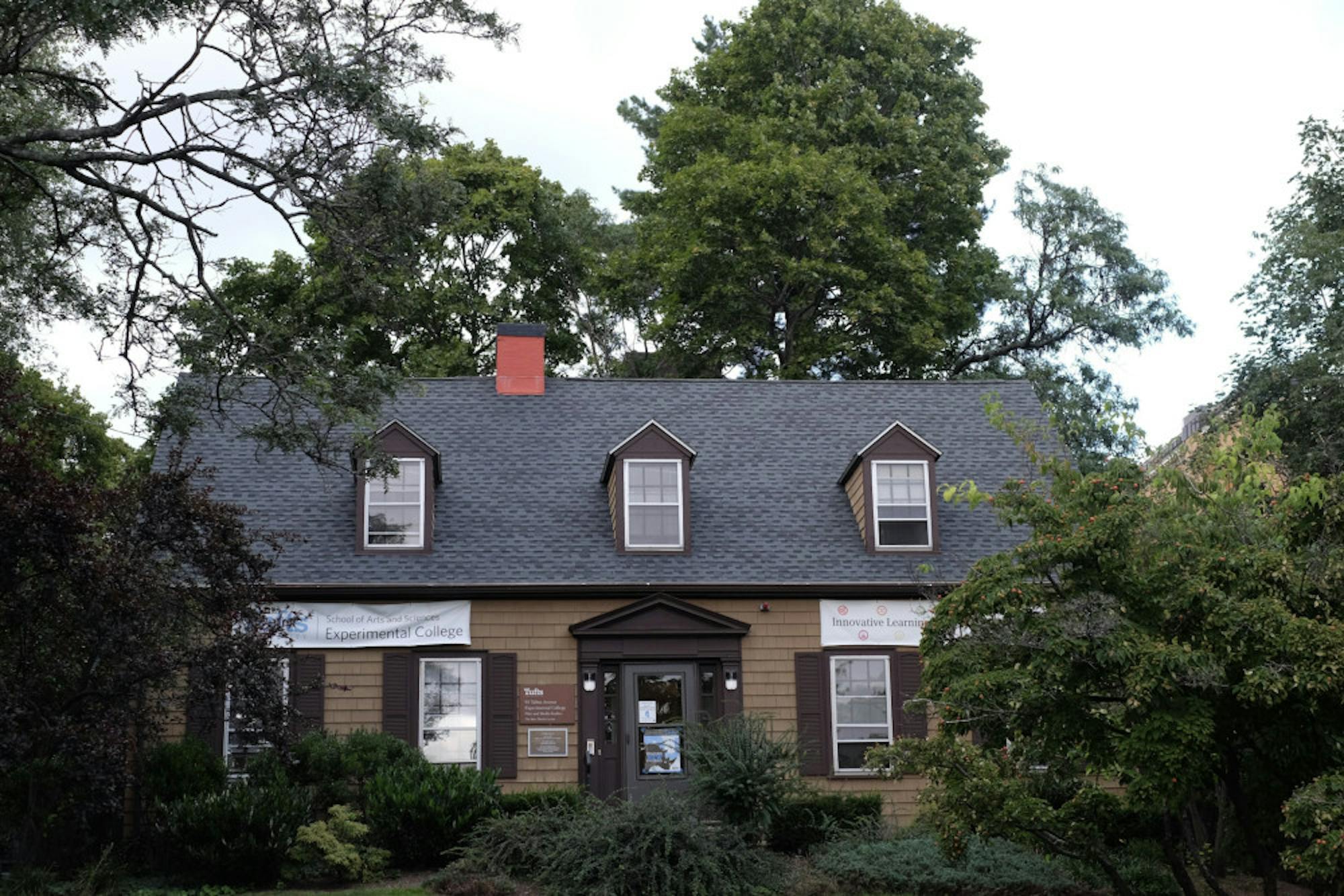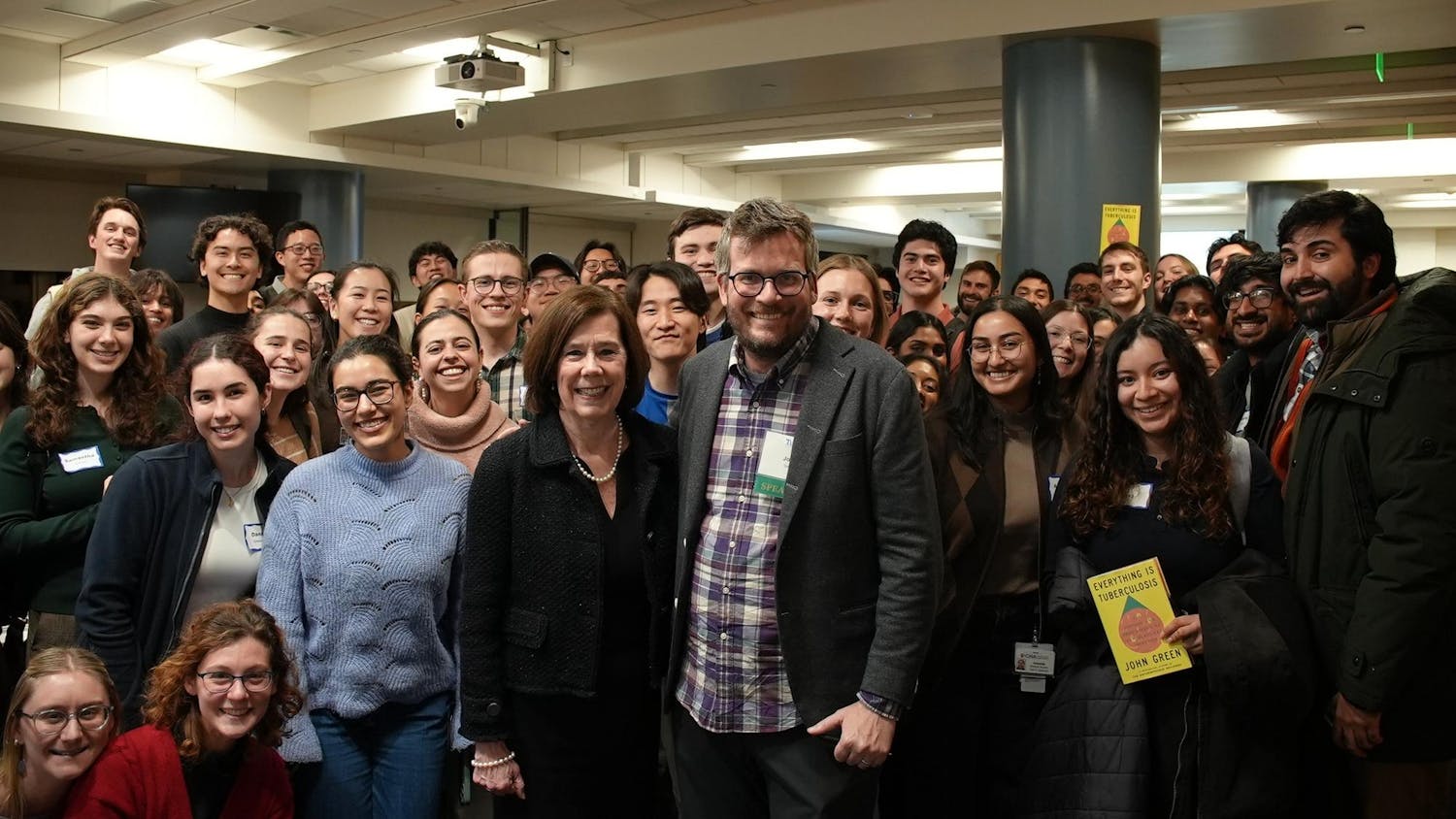The right to privacy has been a topic of legal significance since the founding of the United States, and in 2008, Steven Sharobem and Douglas Martland thought a class on the topic would be perfect for the Experimental College at Tufts. Martland said the constantly changing legal status of the right to privacy makes the subject directly relevant to students. The ExCollege scrambles its course listings each semester, but Martland and Sharobem's class has run on and off for more than a decade, etching itself in as one of the ExCollege's staples.
In the fall of 2008, Sharobem and Martland taught a class titled Constitutional Law and the American Education System. A semester later, the class morphed into what is now The Right to Privacy in Modern America. The lawyer-duo taught the class almost every year up through 2017. After a five-semester break that began in spring 2018, the course has returned this fall and reentered into the Tufts fabric.
Sharobem and Martland met at Suffolk Law School. Graduating in 2005, the pair clerked together at the Massachusetts Superior Court and then worked together at the Massachusetts Court of Appeals for two years. Together, they also worked at the Massachusetts Attorney General's Office for about seven years.
Now, Martland is an assistant attorney general at the Massachusetts Attorney General's Office, working in the constitutional and administrative law division, while Sharobem is an assistant U.S. attorney, working in the United States Attorney's Office for the District of Massachusetts, affiliated with the Department of Justice and in the affirmative civil enforcement division.
The duo first heard about the ExCollege when they were clerking together.
“We had been exposed to some really interesting concepts while we were both in law school — as well as clerking with one another — that we thought would be a really interesting way to teach the law, much differently from what we experienced in law school,” Sharobem said.
The course they developed is discussion-based and encourages critical analysis of Supreme Court cases.
“The idea is really to explore the details of how the right of privacy has been defined in the … last 25 years to 30 years of Supreme Court decisions, and how that has kind of bubbled up to the surface and how it's really dominated daily life in some ways,” Sharobem said.
Their course has been eye-opening for many students and has encouraged deeper thought on this subject of privacy. Emma Bittar, a sophomore and current student in the class, enjoys the open-minded discussions the course offers.
“I’ve always really liked hearing other people's opinions and perspectives, just because we all come from different places and experiences,” Bittar said. “I think it's important to hear about that and to open your eyes to parts of the world that you might not be involved in.”
According to first-year Larson Burak, another current student in the class, having two professional lawyers lead the class gives students opportunities to hear unique, professional viewpoints.
“I really enjoy the perspectives that they bring to the discussions,” Burak said. “Kids in the class will be sharing our ideas, and they'll contribute another anecdote or something that they've encountered in their professional careers that really moves it to another level and changes the dynamic.”
Bittar enjoyed how the professors challenge students' ideas of privacy.
“They definitely challenge our ways of thinking, I think more than I've really experienced before, which has been really fun just to kind of really kind of dismantle your thoughts and then rebuild them back up again,” Bittar said.
According to both the professors and the students, a main draw for this course is its relevance to students’ lives.
“The cases are usually drawn right from the headlines of the major newspapers, the major court hearings,” Martland said. “We spend a lot of this semester doing something new every time.”
After thirteen years of teaching, both Martland and Sharobem agreed that the best part of the class is working with students and learning from their unique perspectives.
Sharobem said he's always struck by how engaged his students are with the subject and "how willing they are to share, both from a personal standpoint, as well as their own viewpoints about what they think is best.”
In addition to enjoying interacting with the students, Martland and Sharobem also enjoy working with each other.
“It's great to have two of us, so that we can always be there for the students outside the classroom. When they need to meet with us or talk to us about something, one of us can always be on top of it," Sharobem said. "I think it's also helpful from a classroom perspective for the students to have both of our perspectives.
Martland and Sharobem create a relaxed environment where they have fun with each other while teaching.
“I do really enjoy poking fun at Steve. And I hope that some of that humor reaches the students, and they can come into an environment that's not so serious and regimented,” Martland said.
Martland and Sharobem know that Tufts does not offer many law classes, and they take pride in providing a course that can help students decide whether or not they want to pursue a career in the legal field. Whether students decide to go into law or not, the pair is equally happy to help students with the decision.
Burak took the course for this exact reason.
“I was partially taking it as an investigation into whether I was interested in law. And I think this [class], not necessarily pushed me entirely away from it, but maybe channeled my interest in another direction,” Burak said.
Similarly, Bittar did not know exactly what the future holds for her in the legal field, but regardless, taking this course has given her a more informed foundation for deciding.
“For me personally, I speak from a very emotional place [and] in a very empathetic place,” Bittar said. “I want to feel like that is really needed in the law field, but I also feel like sometimes that's really lacking. So I just don't quite know how that's gonna fit.”
Sharobem and Martland have had multiple students over the years move on to law school, and many of them still keep in touch.
“I did not realize how much I would really enjoy hearing from former students, and knowing how much they're still influenced by our little class for 13 weeks,” Sharobem said. “That we somehow provided any level of encouragement to them to be where they are is truly humbling to me.”
Martland and Sharobem will not be teaching The Right to Privacy in Modern America in spring 2022. They would like to wait until the end of this Supreme Court term, during which several groundbreaking cases are on the agenda. The professors hope to come back and teach the course again next year.
The Right to Privacy in Modern America will constantly change in response to current events, and that is what makes the course unique.
“I really think this course endures because it's always an opportunity to talk about what's going on in the country,” Martland said. “All of the issues that we talked about are usually front and center in everybody's mind during the course of the semester in a way that they often aren't in many other college classes.”
Sharobem and Martland are thankful for the experience of teaching this class and the 13-year journey they have been on with the university and its students.
“I'm not sure that he and I, when we started this endeavor, thought we would be here in 2021. But we are and there's a reason why we're still here,” Sharobem said. "We really like it and it's just amazing. And we know that that's not just attributable to us, but it's attributable to the students who are willing to put in the work, the time, and the effort.”






